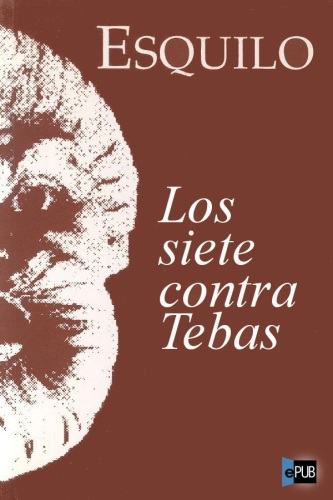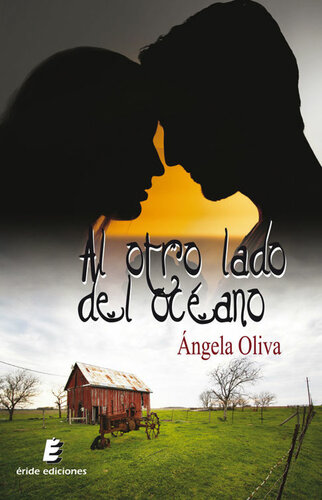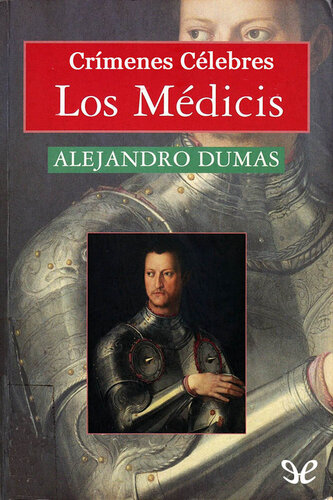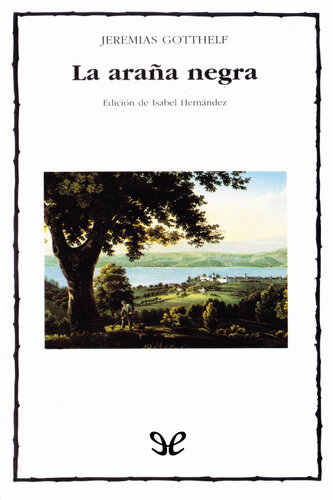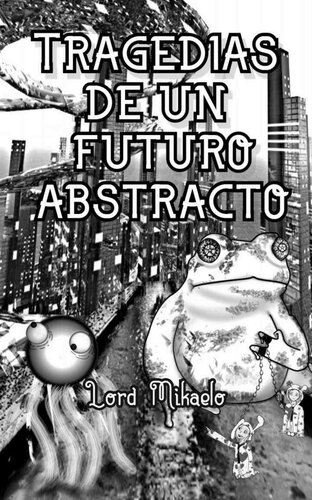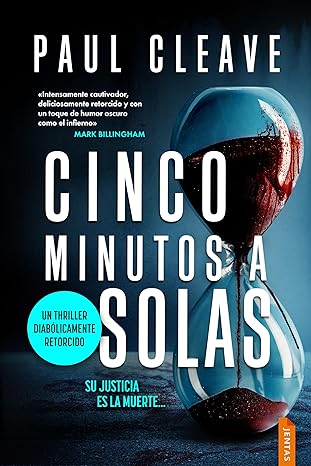oleebook.com
Jerusalen de Lagerlof, Selma
de Lagerlof, Selma - Género: Ficcion
Sinopsis
Lagerlof, Selma Year: 2010
Descargar
Descargar Jerusalen ePub GratisLibros Recomendados - Relacionados
Reseñas Varias sobre este libro
Oh human folly, how beautifully it can be turned into art!
Selma Lagerlöf is such a master storyteller, she captivates me even with topics I find irritating and frustrating - this one: a bunch of Swedish peasants decide they alone know how to live in the spirit of Jesus (Jesus! If they only knew how common THAT delusion of special knowledge is!) and they are convinced that God wants them to leave their lives in Dalarna to lead Jerusalem to unity by showing all the world how to to live in perfect Christianity. Well, that's a topic to get my nails all curled up or bitten down.
But Selma Lagerlöf doesn't preach, she tells stories to be believed for a moment of bliss and dropped when the book is put down. She shows that STORY is the essence of humanity, and that believing in your own fairytale is each human being's right. To strive for your own fairytale's proper ending is her characters' ultimate goal, and Selma, being a good school teacher rather than a preacher, takes them by the hand and shows them the magic of life in the strangest corners.
"You, my friend", she tells her characters, "made a mistake in your storyline here, and you set yourself up for a problem. Now you need to go through all these adventures, and then you - and the reader - will get to the pay off."
So the Goddess of the dark woods of cold Värmland (Swedish-speakers will forgive me the inevitable oxymoron!) set out to conquer the bare sun of the Mediterranean, and her story completed the journey and returned triumphantly to be tucked up where it belongs. If religious zealots could see the world in the many colours that Selma Lagerlöf sees when she weaves her stories, Jerusalem might actually see some unity.
But that, of course, is a story too good to be true...nobels49 s1 comment Emilio Berra253 234
Un mondo altrove
"Finché il tuo cuore sarà legato alle cose terrene, rimarrà legato al dolore" .
La grande scrittrice svedese Selma Lagerlof (Premio Nobel 1909) scrisse questo libro dopo un viaggio in Palestina, compiuto nel 1899 per visitare una comunità religiosa d'impronta americana che si era là stabilita per vivere più intensamente il Cristianesimo e che era stata seguita da una trentina di persone abbienti le quali lasciarono la Svezia dopo aver venduto all'asta i propri beni.
"Jerusalem" uscì in due volumi nel 1901/02, e fu ben presto un bestseller.
L'autrice notò certamente la grandezza d'animo di questi pellegrini, ma fu colpita anche dai forti dissidi fra le varie comunità dei diversi orientamenti, protese a contendersi le anime, in un periodo in cui il dialogo inter-religioso non era affatto in auge. Così che possiamo leggere come, accanto all'austera Gerusalemme storica, sia sorta quella moderna : "qui i cattolici dicono male dei protestanti, i metodisti dei quaccheri, i luterani dei riformati, i russi degli armeni. Qui s'infiltrano l'invidia e la gelosia (...) qui non c'è posto per la misericordia, qui tutti si odiano".
E' sempre bello leggere Selma Lagerlof, così capace di farci uscire per un momento dalle strettoie della nostra contemporaneità, in modo poi da rientrarci un po' rinnovati e più liberi, come emancipati rispetto alla martellante attualità, perché questa scrittrice grandissima pare saper scegliere sempre i sentiero che conduce alla fonte delle cose.
C'è nel libro qualcosa di fiabesco che incanta e c'è qualcosa di epico che infonde una speciale grandezza a queste numerose pagine che procedono con tocco poetico conferito dal dono della semplicità.letto36 s Celia🪐605 1 follower
#RetoEdwardianspirit de la cuenta @victorianspiritsblog, premisa Un Libro de una autora.
No sabéis qué ilusión me hace poder haber llegado a hacer esta reseña. Mi historia con este libro viene de años atrás y es bastante significativa para mi. Y es que la ciudad de Jerusalén es uno de mis rincones preferidos de la tierra, me parece el lugar más fascinante del mundo, y he tenido la suerte de poder visitarla un par de veces (y espero que haya más oportunidades). Hace unos cinco años fue la última vez que tuve la oportunidad de poner un pie en tierra Santa. En esa ocasión me alojé con mi familia en un Hotel que anteriormente había sido una mansión palaciega, con unas increíbles vistas a la Ciudadela de David. Se trataba de uno de esos hoteles con aire añejo que a poco resultan encantadores para el visitante, pese a que no es estaba también acondicionado como lo estarían otros centros más modernos.No obstante, era un lugar increíble y no solo por sus vistas, también por la antigüedad que rezumaban sus salas y su decoración de siglos de antigüedad, y los mil y un detalles que te transportaban a otra época. Sin duda alguna, si tuviera que elegir un hotel para volver elegiría este entre todos. La cuestión es que nos alejaron en una habitación de dos pisos que se llamaba Selma Lagerlöf. Un nombre que no conocía de antes y no sabía qué relevancia tenía hasta que busque por Internet información sobre esta mujer (en una de las salas comunes, porque el Wi-Fi no iba bien en las habitaciones). Fue así como descubrí a esta completa desconocida, apenas tratada en la literatura hispánica. La cual, como me dijo el dueño del Hotel posteriormente, se había alojado en las habitaciones que ahora ocupaba yo con mi familia. Y que tiene el honor de haber sido la primera mujer en haber ganado un Nobel de literatura en la historia.
Ni que decir tiene, que me quede como con el nombre de esta mujer para buscar más información sobre ella cuando volviera a España. Y parece que mi destino era encontrarme con ella si o si. Porque justo en el viaje de vuelta, en la estación de trenes de Madrid cuando esperaba para coger él que iba a llevarme a mi ciudad me encontré con un puesto de venta de libros. Y ahí estaba, el nombre de la autora que había conocido por primera vez hacía solo unos días estampado en la portada del libro cuya escritura le había la había llevado a la capital de Israel. Donde había estado yo hacía solo unas horas alojada entre las mismas paredes que ella. Y encima el libro costaba menos de tres euros. ¿Cómo no iba a cogérmelo?
Desde entonces, siempre ha estado en mi lista de ternos pendientes. Lo he tenido muchas veces entre manos para empezarlo, y alguna vez me he leído las primeras páginas. Pero de alguna forma sentía que tenía que llegar el momento propicio para introducirme en esta novela y con su creadora. Y gracias al reto eduardiano creo que he encontrado este momento y he leído el libro en el momento perfecto para disfrutarlo tal y como se merece. Porque puedo asegurados que es una obra que merece la pena leerla. Y mucho.
Eso si, aviso para navegantes: no sé que puede salir de esta reseña, la obra me ha sorprendido tanto y me ha dicho tantas cosas que no sé ni que decir de ella. De hecho, he hecho algo que no me gusta mucho hacer.He encontrado un par de criticas en Internet en las cuales aparecían ideas sobre esta novela que yo había percibido a lo largo y ancho de su lectura, pero que me costaba mucho poder explicarlo con palabras. De ahí que muchas veces haya escrito con mis propias palabras algunas de estas ideas que aparecen en ellas (algunas, no todas, por supuesto). Son dos reseñas muy buenas y me parece de justicia explicar cómo me han influido y ayudado para escribir esta critica, que me ha parecido tan compleja de realizar.
Basada en hechos reales, la novela empieza en un pueblo campesino de la región sueca de Dalecarlia, zona muy importante del sentir y la cultura del país. En dicho lugar, sus habitantes llevan una vida dura trabajando arduamente la tierra, pero les sostiene los lazos que hay entre vecinos y su fe inquebrantable en dios. Entre ellos destaca la familia Ingmarsson, cuyos miembros no son los más ricos y apuestos del lugar, pero son muy respetados y hasta las familias más pudientes quieren emparentar con ellos, porque se considera que siempre hacen lo que Dios ve más conveniente, y por eso cuentan con su gracia. Todos sus cabezas de familia llevan siempre el nombre de Ingmar Ingmarsson, y, como curiosidad, hay que señalar que el prólogo de la obra que nos ocupa, en el cual conoceremos la desgracia en la que se fragua el matrimonio de los padres del protagonista de la historia principal, fue sacado por la autora de un escrito previo suyo, ya que consideró que no iba a idear otra saga familiar mejor construida que esta.
A partir de este planteamiento, conoceremos las desgracias que van a ir aconteciendo a los Ingmarsson de la finca Ingmarsgården, y la manera en que la vida de la comunidad cambia con la llegada de Hellgum, un hombre en torno al cual se crea un movimiento religioso en el que se defiende la bondad, el compañerismo y el amor al prójimo como medios para llegar a Dios y traer a la tierra su reino. Y así el destino de los habitantes del pueblo acabara por unirse a un acontecimiento previo, el hundimiento del vapor L'Univers. Y es que varios de los supervivientes de dicha tragedia escuchan la llamada de dios, que les anima a crear una comunidad en Jerusalén cuyos integrantes vivirán en paz y armonía entre ellos y con el prójimo. La conexión entre los dos sucesos no tardará en ejecutarse, dando pie a que muchos de los habitantes del pueblo sientan la llamada de dios y decidan emigrar hacia Jerusalén para unirse a dicha comunidad de los Gordonistas (nombre que se le está informalmente porque fue fundada por una de las supervivientes del naufragio antes mencionado y que se apellida Gordon) y llevar una vida acorde con las enseñanzas de Cristo, dejando atrás a sus familias y a todo lo que han conocido siempre.
Creo que con solo leerlo, podréis notar lo muchísimo que me ha costado hacer simplemente el resumen. Y a partir de ahí podéis imaginaros cuánto me ha costado hacer esta reseña, no os voy a engañar. Porque ¿como se puede definir la complejidad de lo que aparentemente es simple? Porque eso es Jerusalén, una historia sencilla en argumento y prosa, pero en la que rápidamente se advierte una enorme complejidad que acaba por arrastrar al lector al mundo interior y religioso de sus personajes y a sus complejas y profundamente humanas personalidades. Es una obra difícil de clasificar, inscrita entre la novela naturalista, el realismo mágico, la saga familiar y la búsqueda religiosa. Lagerlöf no se limita a crear una historia en la que la religión tiene un peso fundamental y una familia es su columna vertebral. Crea algo más que eso, algo que es muchísimo más que eso. Crea una epopeya sobre la humanidad, en la que tienen cabida todos los sentimientos y todos los hechos vitales y relevantes que conlleva a ser humano y existir. Jerusalén está ambientada en la ciudad de este nombre y en un parte concreta de Suecia, pero si hubiera estado ubicada en España, en África o en China hubiera dado igual. Porque lo que cuenta es algo intrínseco del ser humano, algo imperecedero y eterno, y que todos conocemos. Jerusalén es como la vida misma, tan difícil de vivir en el momento, pero al final más sencillo de lo que parecía a simple vista.
La primera parte de la novela (publicada en 1901 como libro independiente) tiene lugar en Dalecarlia, mientras que en la segunda (publicada al año siguiente) nos moveremos entre Jerusalén y Suecia, es decir, veremos que pasa tanto a quienes se fueron como a quienes se quedaron atrás. Esta segunda parte empieza con la descripción del hundimiento del transatlántico antes mencionado, que se convierte en el detonante de toda la acción principal de la obra. Esta estructura me ha parecido muy interesante e innovadora para la época en que la obra fue escrita. Deja al lector con la sensación de que todo lo que ha leído hasta ahora es un mero aperitivo. Y sobre todo de que no puede dar nada por hecho, en cualquier momento aparecen sucesos y personajes que dan otro aire a la narración (que es exactamente lo que ocurre). Da pie a que los personajes puedan desarrollarse de una forma muy orgánica y creíble, a que el lector descubre que pese a la sencillez de sus ideales, y la parquedad es su forma de ser, son mucho más complejos de lo que aparentan a simple vista o de lo que incluso ellos pueden intuir. Y permite que esa complejidad aparezca al lector de una forma realista y significativa para el o ella.
De todas formas, tengo que decir que la segunda parte ha tenido pequeños flecos que han hecho que esta lectura no sea todo lo redonda que prometían sus primeras páginas para mí. Lo cual no equivale a que esta parte desmerezca para nada de la primera. Simplemente, creo que la autora que hay demasiado en el romanticismo de folletín y que hay algunas escenas que me han resultado especialmente pesadas de leer. Pero aún así, intercaladas con ellas ha habido momentos en las que la pluma de Lagerlöf logra salvar los muebles totalmente. Y creo que es lo único negativo que puedo decir de esta magnífica lectura, así que tampoco me parecen que sean errores especialmente tremendos.
Si algo me ha sorprendido mucho en esta lectura ha sido su pulso narrativo. El ritmo es pausado y sereno prácticamente todo el rato, Lagerlöf se toma su tiempo para narrar. Pero esa serenidad tiene sentido con la espiritualidad que impregna toda la obra. Hace que sea fácil aceptar muchas de las cosas que suceden, y que los elementos más fantasiosos tengan todo el sentido y casen bien con la trama. Y que la autora no se ahorre casi doscientas páginas para introducir al lector en su historia y sus personajes. Y lo hace de una forma tan magistral que todo fluye perfectamente, con la serenidad y ligereza del mecanismo de un reloj, y aquel que lee se lo traga todo sin pestañear. De hecho, está encantado y maravillado, por la forma tan nítida y especial que tiene para crear ese microcosmos rural, en el que sus habitantes sufren a lo largo de sus páginas por una serie de conflictos internos con los que todos podemos sentirnos identificados en algún momento, sobre las lealtades, la familia, el amor y Dios. Estos conflictos resultan crueles en muchas ocasiones por como les llevan hacia extremos insospechados y como muchas veces suponen para ellos y para otros autenticas traiciones, y por la forma en que trastocan sus vidas y terminan por definirlos a ellos y a todos sus conocidos.
En ese sentido, tengo que reconocer que esta novela me ha recordado a otra que a primera vista no tiene nada que ver, la celebre Middlemarch de George Eliot, un libro en el que su autora nos presenta con pulso lento, pero firme y seguro, un fresco nítido, realista y vivido que es una ciudad de provincias que envuelve, totalmente al lector, en la que conviven diferentes familias y personajes de distinta posición social y suerte monetaria, donde la trama es una tela de araña en la que todo está interconectado, lo que suceda a alguno de sus participantes acaba por afectar al resto. Y también me ha recordado mucho a otra genial y conocidísima obra esencial de la literatura universal, esa maravilla increíble que es Cien Años de Soledad de Garcia Márquez. La leí el año pasado y en ella mencione que ningún escritor había sido tan Dios en su trabajo como Gabo en este caso. Pero hay que decir que Lagerlöf no le va para nada a la zaga. La epopeya del Ingmar Ingmarsson de turno y sus familiares y vecinos quizás no tenga nada de grandioso o heroico, y los elementos de realismo mágico en ella no sean tan poderosos como en la obra latinoamericana . Pero es la epopeya del hombre pequeño y corriente que solo tiene su propio honor e integridad para moverse en el mundo, y que debe enfrentarse a sus pecados y errores, a los problemas y a las pasiones que le desgarran el corazón y dirigen sus existencias para bien y para mal. Es el mito de como ellos deben buscar y tratar de hacer aquello que creen correcto mientras sienten la mirada de Dios sobre ellos en todo momento.
Y es que Dios es una pieza central de este juego. Su búsqueda y el miedo que genera, la necesidad de que sea una fuente de consuelo e iluminación marca los tempos de los personajes y sus decisiones. Y al mismo tiempo es lo que les lleva, muchas veces, a decepciones y equívocos, a lo peor de si mismos. Con la inmigración hacia Jerusalén aparecen las sombras y dudas de muchos de ellos, al ver que su aventura no da los frutos esperados y se siente como náufragos en una ciudad de costumbres raras para ellos y cuyos habitantes les son hostiles, con un clima que les hace enfermar, y que no es para nada el lugar idílico de cristal y oro del que hablan las sagradas escrituras y los cuadros, si no un lugar muchas veces sucio y empobrecido. Dios no está en un desconocido cualquiera, y su reino no parece más cercano en Israel que en Suecia. Se le va encontrando en uno mismo, en el trabajo y en una religiosidad más realista y humilde, alejada de visiones, voces divinas y apocalipsis. La propia Jerusalén es un mito que se desmitifica por si mismo, y gracias a eso muchos de los peregrinos, tras una odisea personal y emocional muchas veces cruel, se encuentran a si mismos y con ellos la paz. Y creo que esto le llega al lector porque la autora evita emitir juicios, no se ataca ningún tipo de sentir religioso. Todo es valido mientras no de dañe a otros, ella sabe tanto donde está Dios como sus personajes.
La obra no se hace para nada difícil o pesada de leer, pese a sus más de seiscientas páginas y a las muchas cosas que suceden en ella. Lagerlöf debería dar clases de como hacer que un argumento fluya con ligereza, sin forzar nada y sin necesidad de artificios y grandes efectos. Creo que uno de los puntos fuertes de esta lectura es la prosa de Lagerlöf, sencilla, claro y ágil, impregnada de una vivacidad que logra que el lector se implique en lo que lee y que hace que la experiencia sea muy amena. Su pluma es muy directa , al igual que su estilo, y con una gran economía de medios logra un trabajo muy lírico y hondo. Pero aún así tiene el don de hacer una obra llena de detalle, en la que no se da puntada sin hilo. Todo tiene su porque y todo está interconectado entre si. Y todo con un cuidado y una nitidez sublime, con un sentido poético lleno de gran belleza y al que es muy fácil llegar mientras se lee. No dedica mucho tiempo a las descripciones, pero aún así logra transportarte desde la región de Dalecarlia, con su exuberante vegetación, su bosque umbrío y su río indómito y profundo; hasta una Jerusalén polvorienta y yerma, con un clima tan caliente que enferma y un sol inmisericorde que cae plomizo y se mete en el cuerpo y en el cerebro. Y por ello todo lo escrito se vuelve real y cercano, palpable. Como la vida misma.
En fin, para acabar, solo puedo recomendar encarecidamente Jerusalén. Es una odisea sobre el amor hacia la tierra, la añoranza, el tratar de hacer lo correcto, la espiritualidad, el deber y las grandes pasiones del ser humano. Es una pena, y una absoluta injusticia que esta obra y su autora hayan sido tan olvidadas por el mercado español. Desde luego, la primera mujer ganadora de un Nobel se merece mucho más reconocimiento. A mí me ha quedado plenamente claro con esta lectura, tan especial y diferente a todo lo que leído, pese a su simplicidad y al hecho que trata temas que pueden parecer muy comunes. Es una lectura que de algún modo, sin giros espectaculares (lo que no quita para que haya escenas bastante dramáticas y duras), logra alcanzar al lector Y atraparle. Siempre que leo por primera vez a un autor que me gusta mucho digo que quiero seguir leyendo más sobre él. Pero en este caso juro que va a ser así, me ha gustado mucho lo que he conocido de esta autora. Tengo mucha curiosidad por ver la película que hay sobre ella de los años 90. Me parece un libro muy difícil de adaptar a un guion y tengo curiosidad por ver cómo se ha hecho, aunque tengo que reconocer que no tengo muchas expectativas respecto a ello. Pero quién sabe, quizás me sorprenda lo que vea.classic favoritos-2022 films-series-books ...more26 s Tanja Berg2,007 473
Selma Lagerlöf was the first woman to win the Nobel Prize in literature. " The Wonderful Adventures of Nils" was a much beloved story when I was little and I even returned to it as an adult. Despite this, and despite having read and d other works by the same author, I was surprised at how modern and relevant this book was.
It's a story about a Swedish community that get invaded by a religious sect. That's basically what happened, although it is subtly told. It's the story about people who left their property to go to Jerusalem. It's the story about some of the ones that were left behind. It is also a quite enchanting and unexpected love story. I don't normally those, but in this quaint setting and being as well-told as it was, I much enjoye the lot of it.
I will definitely be dusting off the books by Selma Lagerlöf that I have in my shelf and have not read. Some years ago I saved a handful of beautiful leather bound books by her and I still have a couple that I haven't gotten around to yet.audio classics historical-fiction ...more14 s Erika737 63
Andra läsningen, och åh, så fantastisk den är även den här gången. Jag känner till berättelsen från första läsningen och från de tillfällen när jag sett filmen (även om filmen tar sig en del friheter med handlingen) men blir ändå som uppslukad. Det är något med Selma Lagerlöfs sätt att berätta den här historien som gör att jag bara vill ha mer även om jag egentligen vet hur det ska gå. Dramatiskt och stort, men också nyanserat. Jag älskar personlighetsutvecklingen i den här romanen, hur Lagerlöfs personer kämpar med sig själv, plikten och Gud, hur de övertygas, älskar och finner att de måste tänka om.favorites9 s Bjorn875 163
On the same day that he arrives in the holy land after never before even setting foot outside his own village, a middle-aged pilgrim comes down with a fever that proves to be fatal. Dying, he asks his companions to carry him into Jerusalem so he can at least see God's city first-hand. As they carry him through a noisy, stinky, crowded city full of people of three different faiths going about their regular business, they point out the landmarks to him: this is where the last supper was held, this is where Jesus was tortured, this is where he carried the cross, this is the holy grave. And he looks at all this mundanity and begs them to stop joking. This can't be it, show me the real Jerusalem. Where's the gold? Where's the glory? Where's the peace and serenity? Where's God? Did he really come all this way, did he give up everything, did he die just to see a... city?
There's a long tradition in Scandinavian literature, especially 19th century literature, of the "simple" bygdedrama - village drama, the story of a small village and the farmers who live there, the big man on top of the hill, the old pastor, the simple but virtuous tenant farmer's daughter, etc. Selma Lagerlöf's Jerusalem, loosely based on real events and often cited as one of the major reasons why she became the first female Nobel Prize winner, takes that and runs with it, turning it into a great early-modern novel in the process.
Focusing on the inhabitants of a small village deep in the forests of Sweden, it follows the wave of religious awakening that swept across the Swedish countryside in the late 1800s and led some to abandon everything and everyone they'd ever known to make the pilgrimage halfway across the world to settle in Palestine. She takes her time setting things up; of the two volumes, the first is set entirely in the small parish they all come from, setting up who they are, the life they've led for generations, and the conflicts that arise when the modern world starts getting closer - both material and ideological/religious rules suddenly start changing, and all of a sudden it's not a given that the richest farmer, the schoolteacher and the preacher are unquestionable authorities. The second volume details what happened to the ones who, eventually, sell their farms and give up everything to emigrate to a country about which they know very little apart from what they've read in the Bible.
Lagerlöf tells it all a fairly simple story, limiting herself to what her uneducated characters can feasibly know and think about; at the same time, though, she manages to weave in discussions on faith (both religious and personal), community and family that never tries to give any easy answers or pick sides; even when she introduces mystical elements and themes (both Christian, Muslim and pagan; fairytales were still very much alive in these areas a 100 years ago) she leaves it up to the reader to decide whether they're real or just in the characters' heads - and indeed, if it matters one way or the other. But what really makes the book is the way she handles the characters, gradually letting the main characters in this, at heart, fairly simple story become more fully drawn, giving them a history that goes back generations and then occasionally raising the drama to heart-wrenching levels without having to resort to any far-fetched plots.
Beautiful. sweden7 s Mariangel600
The first part of the book deals with the life of farmers in Dalecarlia, and we get to know the schoolmaster, the preacher, the Ingmarssons (the oldest family in the parish) and a few other characters. One day, some relatives who live in America come visit and attract many families to their faith, an exclusive group of Christians who want to live together in unity and harmony, and shun the rest of the families who do not join. Eventually , the members of the group decide to sell their properties and travel to Jerusalem to establish a community there.
The second part of the book follows the Swedish community in Jerusalem, the troubles they find with the climate, the hostility by other Christian missionaries, and the people from many nations who join their group little by little. One day, Ingmar Ingmarsson, who was not part of their group, comes visit them in Jerusalem and slowly helps the community make changes for the better, as well as fix some family troubles between the emigrants and their family members left behind in Sweden.
The writing is very pleasant and light, even the hard events are shown delicately and there is always a sense of hope as we read. Selma Lagerlof lived with the Swedish community in Jerusalem for a year and that was the inspiration of the book.4 s Astrid78 5
Egentligen borde denna va så otroligt tråkig men Selma är ju magisk så den blir en fröjd att läsa. Älskar henne! Ge henne nobelpriset en gång till! 4 s Natia Morbedadze599 79
????? ?????????? ???? ??????, ???? ??????? ?????????? ????????? ???????? ?? ?????? ???????? ??????? ????????, ???????? ????? ?????. ???? ???????? ??????????? ???? ???? ???????????? ???????? ????????? ????? ?????????, ??????? ???????????, ???? ?? ???????? ?????????? ???????? ?????????. ????? ???????? ??? ?????? ????? ???? ??????????, ?????? ????? ????? ?????????. ?????? ???, ?????? ?????? ????????????...sweden3 s Petter Lundqvist48 Read
En bra bok.
När Gertrud ska få träffa mannen som hon tror är Jesus, vilken visar sig vara inte Jesus =
känslan efter 01 mot Malmö 12 november. 3 s Emelie172 50
I find the book a little bit to lengthy. Really long bits that is just descriptive and adds nothing to the story, but gives flesh to the characters. I've mixed feelings about it. The language is beautiful, the narration and descriptions lovely, so I hated it, even if I loved it.
Well build characters.
It was a bit scary to see how fanatic they were, specially in the beginning. Interesting note she made that it was the Christians in Jerusalem that fought each other, not Christians against Jews and Muslims.19th-century classics historical-fiction ...more3 s Rebecca109
En klassiker skriven av en av sveriges mest kända författarinnor. Boken handlar om en grupp bönder i Dalarna som beslutar sig för att åka på välfärd till Jerusalem där de stöter på problem som endast Herren själv kan hjälpa dem med. Boken speglar ett samhälle för lite mer än 100 år sen men som man ändå väldigt enkelt kan dra kopplingar mellan till idag. Riktigt bra berättelse som får en att reflektera om än det ena och än det andra.3 s Sonia9
Selma's great talent is showing fully in this compelling story. Every description has its place and meaning and in spite of the length and theme, this is a truly "unputdownable" novel. The historical setting is meticulously accurate and this makes it an interesting read. Her empathy for the characters and her lyrical prose are a joy to read. 3 s - Fey - Es167 18
Puntuaciòn: 4,5/5
Magnìficamente narrado, construcciòn de personajes y desarrollo de la trama... Al igual que esta colonia de campesinos, emprendì un viaje con ellos hacia la tierra prometida.
"Usted es la joven Amèrica que quiere probar toda clase de aventuras y yo soy la veterana Inglaterra que conoce el mundo y sabe que es posible y que no" -P. 272
La trama basicamente es esa concepciòn dual del estar y conformarse con lo que se tiene y el riesgo que se toma al querer buscar algo mejor... creo que en cualquier punto de nuestra vida se nos presenta el tomar una decisiòn de este tipo y estàn siempre los que te apoyan a luchar por un futuro mejor y los que te retienen porque saben lo difìcil que es obtenerlo y lo duro que es salir de nuestra zona de comfort.
Este libro me ha tocado una parte sensible, y me ha dado una perspectiva diferente sobre algo que desestimaba mucho... agradezco el haberlo leìdo, fue muy oportuno... y quede encantada con la escritora, por ello os lo recomiendo. A parte que es la 1era mujer en ganar un premio Nobel so... NO DUDEN!2017 best-2017 comprados-sin-leer ...more2 s Joseph SverkerAuthor 4 books58 Read
På många sätt en fantastisk bok. Hon är otrolig på att skildra livsödena. Jag har ingen aning om hur mycket som grundar sig på verkliga händelser, men jag blir väldigt nyfiken att ta reda på mer. Jag vet inte heller om Lagerlöf var nere i Jerusalem, men miljöbeskrivningar och förståelsen för landet är mycket detaljrika och målande. Mycket läsvärd.nobel-reading-project novels-scandinavia2 s Sarah116 1 follower
Stark berättelse om tro, hopp och kärlek, som berör än idag, över 100 år efter den först kom ut. Trots att människorna lever på helt annat sätt än vi gör idag brottas de med högst mänskliga teman och Selma Lagerlöf ger liv åt dessa karaktärer som gör att jag rycks med och bryr mig om deras dramatiska öde.classics min-fysiska-drömbokhylla nobel-prize-laureates2 s Tyra35
Bra, men helt ärligt lite för lång för att jag skulle palla. Fin och så, men igen, ibland lite väl seg. Det händer mycket i boken och så, så det var inte direkt mycket dötid men ibland hände massa saker som inte direkt hade någon påverkan på storyn och då hade jag nog faktiskt hellre skippat dom bitarna och gjort boken lite kortare istället. 2 s Jonas105 6
Selma Lagerlöf spinner, som alltid, samman en underbar berättelse baserad på gamla sägner och sagor. Och ändå så träffande och verklig. Språket är målande fantastiskt, nästan som musik. Jag kan varmt rekommendera denna bok.favorites lästa-2017 nobelpristagare ...more2 s Aron Modig164 1 follower
Välskriven men för rörig för min smak. Jättemånga "huvudpersoner" varav typ hälften heter samma sak. Mycket "några månader/år senare" och liknande.2 s Sebastian Sampallo465 16
This is the third book of Selma Lagerlöf which I have read. Both of the previous books (Kejsaren of Portugalien and Löwensköldska ringen) were great. While Jersualem was perhaps not as great (mostly due to being quite long), it was a very enjoyable and interesting book. Selma Lagerlöf is probably my favourite classic Swedish author.
Jerusalem is divided into parts, whereas the first part focuses on a Swedish village in Värmland (I think) and the people living therein. It is quite a slow book, and the first part primarily focuses on the reader getting to know the people in the village. We also get to read about a religious sect arising in the village and their preparations for leaving to Jerusalem to start a new life. In the second part of the book, we get to follow sect's life in Jerusalem. The book is based on a real sect doing just that, which is quite interesting.
Despite being over 100 years old, I think that Lagerlöf wrote in a very accessible way. She is really a master at creating an interesting story, which she manages to do also in Jerusalem. My main objection to Jerusalem was that it was perhaps a bit too long, and a bit too eventful at times. This issue is however more than compensated by flawless writing, interesting and able characters, and an ending which in my opinion was perfect. 1 Malin Magnusson Barle69 5
En helt vidunderlig berättelse och bladvändare, en blandning av utvandrarepos och saga. Det är fascinerande hur en över hundra år gammal bok kan trollbinda mer än femhundra tättskrivna sidor. Kanske beror det på Lagerlöfs förmåga att skärskåda människosjälens in i dess minsta skrymslen och gömmor och att förmedla detta på ett enkelt men vackert språk. Sagans mönster förenas med biblisk tematik och gotiska inslag vilket gör detta till en läsfest för litteraturnördar.
Byborna som sticker från allt det som är dem hemma och vant och det enda de känner till av världen, ledda endast av en gudstro, gör att man förstår styrkan i denna tro. Det är gripande hur deras släktingar desperat försöker få dem att stanna, hur kärleken till Gud segrar över kärleken till familjen. Jerusalemfararna är som barn i sin naiva tro, övertygade om Guds kärlek; värnlösa står de i det heliga landet helt oförberedda på de umbäranden och sorger de har framför sig.
Det mest fenomenala med berättelsen är hur Lagerlöf lyckas få ihop alla ödestrådarna, hur rätt vänds till fel och fel blir rätt för de strävsamma människorna, i en ständig dragkamp mellan ont och gott.crème-de-la-crème dalalitteratur dn-boksommar-2020 ...more1 Fredrik Heby33
Dette er et mesterverk i svensk litteratur, så vel som i verdenslitteraturen. Jerusalem tar oss med på en valfart fra den svenske landsbygda til Jerusalem, og tilbake. Store tematikker tas opp, liv og død, tilhørighet og utenforskap, fattigdom og rikdom. Dette er en bok som ikke forlater deg så lett, og en av de få bøkene du er glad for at har knappe 600 sider. 1 Kristin Malmqvist24 1 follower
Åh så bra - fängslad från första till sista sidan. Selma var en mästerlig berättare och en människokännare av rang; slås nu liksom även tidigare då jag har läst henne, av hur realistiska och trovärdiga personporträtt hon målar. Jag skulle kalla detta (social)realism med inslag av magisk realism - mina absoluta favoritgenrer. Framför allt den första boken som utspelar sig i Dalarna tyckte jag om, även om den andra delen som utspelar sig i Jerusalem också var mycket bra. En stor läsupplevelse, skulle rekommendera denna bok till alla!1 Irma5
3,5/5 egentligen, bra bok! 1 Agnes80
Wow wow WOW vad jag älskar Selma Lagerlöf. Fan vilken grym författare. Den här boken var amazing. #slayfavoriter1 Paulin6 1 follower
ganska episk
3.51 Sara408 19
First, before I begin my review, I just want to remark how strange it is that the only thing I remembered about "Jerusalem" before I started reading the novel was that it was about Swedish farmers that travel to Jerusalem, and that one of the main characters was a young girl. It's strange, because the movie, by Billie August, is one of my mother's favorites and I have seen parts of it multiple times during my childhood... plus I'm kind of certain that we watched the movie during our Swedish classes in high school.
"Jerusalem" is a low-key, kinda cozy novel about a religious awakening in a small Swedish farmer's village, after a preacher arrive and starts a community that emigrate to Jerusalem, to lead a pure life in the holy city. The first half of the novel is about life in the village, how it was before and how the awakening happened. The second half of the novel is set in Jerusalem and tells the story of the farmers in the American colony. The novel is based on a true story, and Lagerlöf wrote it after visiting Jerusalem at the end of the 19th century and there encountered the Swedish farmers.
What I most about "Jerusalem" are the elements of magic realism. The novel are mostly very realistic, with some nuances of national romanticism - the descriptions of Swedish nature and how the farmers long for the scenary of their home county in their dreams - but over all this realism there are layers of the supernatural. Mostly it's portrayed as religious callings och signs, but there are also superstitions and elements from folklore, which add a lot to the feel of the novel.
I'm not a fan of the Swedish classics, but Selma Lagerlöf are an exception. 1890s 4-stars books-movies ...more1 Rebecca908 7
This was a real gem. Its not perfect - I presume that the first few chapters exist to give some background history to the Ingmarsson family but theyre not directly relevant to the story which as a result takes some time to get started, and there is the odd unly bit of coincidence, or non-sensical behaviour to drive the plot along that you often get in novels of this era. However from the beginning the language and scenes of pastoral life are lyrical and beautiful, and although this doesnt stop Lagerlof from being brutal about hardship and tragedy (there is a description of a ship wreck, similar to the Titanic although written way before, that is one of the most moving and evocative that I have ever read) overall this is a fairly restrained and believable account of the emergence of a small religious sect in a conservative rural community. Most of the emotion as it divides families and the community is very quietly done but is no less devastating for that. Definitely recommended if you enjoy literature from this period.sweden translated1 Jack467
Lite mycket Gud va? Annars är den intressant och rolig och fin och skildrar mycket fint människors livsöden från bara i några rader för nån bifigur till Ingmar själv. Lite seg kanske men ändå spännande med Jerusalemsskildringen. Men är det inte lite väl mansdominerat också? Eller alltså varför är guds plan att alla runtom ska vara brickor i Ingmarssönernas spel?!
"Där bodde ett dåligt folk, sådant där utskum, som tillverkas, då Vår Herre vänder bort ögonen eller är sysselsatt på annat håll."
"Det, som fordras för att lifvet skall bli lika lätt som döden, det är enighet, enighet, enighet"
"Här är själajaktens Jerusalem, här är de onda tungornas Jerusalem, här är lögnernas, förtalets och smädelsernas Jerusalem. Här förföljer man utan vila, här mördar man utan vapen. Detta är det Jerusalem, som dödar människor."1 Maria ElmvangAuthor 2 books102
Autor del comentario:
=================================
